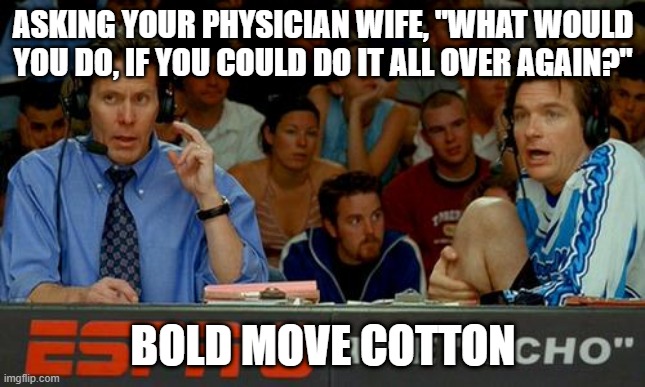A bit scattered on my part, but here we go:
Unfortunately, I think the combination of the first and second halves of your day above is going to be difficult to pull off. Some folks do, but in general, the types of researchers conducting the types of studies you're referencing, particularly if they're the PI, are going to be doing that full-time (and then some). They may have a clinic day or half-day once a week, but the majority of their time will be spent leading research teams, securing grants, etc. You've also listed quite a few somewhat-disparate research interests. That's not a bad thing, but you'd likely need to narrow things down once you get further along (e.g., the bolded part is probably closer to psychiatry/neuropsychiatry or clinical psychology research than either neurology or neuropsychology, and is a huuuuuge field of study in and of itself). If you're wanting a truly 50/50 split like this, odds are it's going to be as a non-PI part of a larger team. That's tough to swing, because you have to find some way to pay for the 50% of your time that isn't clinical and that you aren't necessarily pulling in grant money yourself to cover. A 90/10 or 80/20 type split is probably more reasonable, and may involve a day or half-day a week spent on research activities.
When seeing patients as a neuropsychologist, you're not likely to be directly reviewing the MRI with most patients (you may reference it with the patient, and will almost certainly mention it in your report). You're even less likely to be reviewing an EEG or especially EKG (I honestly don't even know how many neurologists routinely do the latter). You also aren't likely to be the one ordering an MRI or EEG, although in some places you can, and you could certainly recommend it to the referring provider. You will likely explain the results of your testing to the patient (that day or at some point in the future), but not typically in the way you've described. The level of detail and type of thinking you've listed may be helpful for you in your conceptualization, but in most instances, what patients (and most referring providers) care about is: 1) is something wrong, 2) what is it, and 3) what can I do about it.
As a neuropsychologist, if you're doing your own testing, you're probably going to see one, maybe two people/day for evaluation. And that's full-time. You may see more if you have a psychometrist. You might see another couple for an intake interview (if you do those separately) or feedback appointment. Any neuropsychologist worth their salt should be able to perform basic CBT or something similar; some neuropsychologists keep a small panel of therapy patients, some don't. Some also provide cognitive rehabilitation.
All in all, with what you've described, it sounds like neurology might be the better fit. As a neurologist, I suspect it would be pretty easy to be brought in to ongoing research projects (this is pretty easy as a neuropsychologist as well, mind you). You're also more likely to be seeing multiple patients per day before lunch, to be ordering MRIs and EEGs (and all sorts of other common and esoteric labs), and to be combining all of that information into ongoing follow-up with a patient. You will not be providing CBT, and you also probably won't be conducting in-depth cognitive testing; you can refer out for that.

